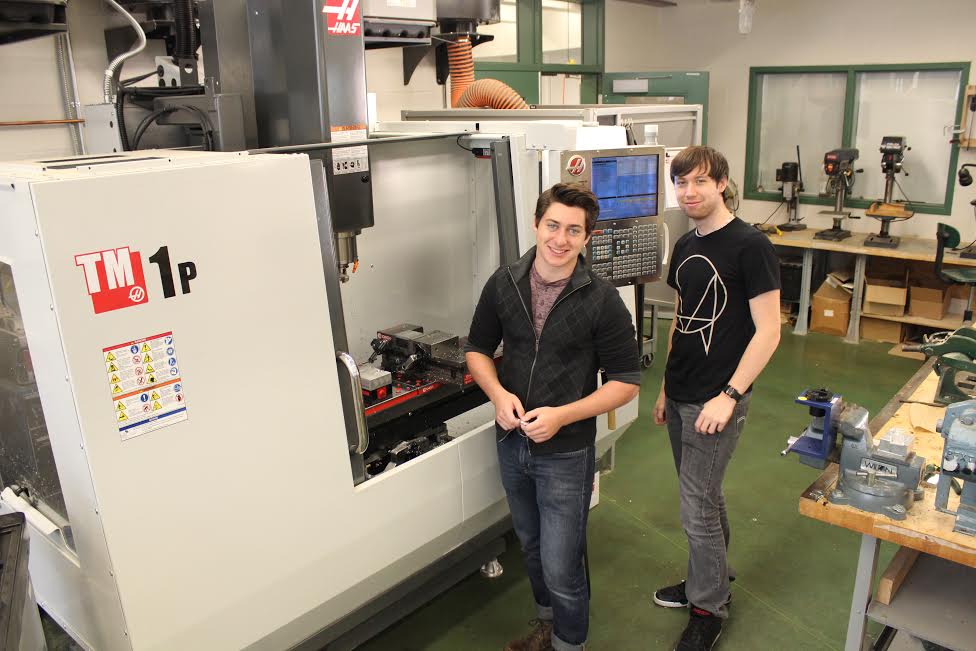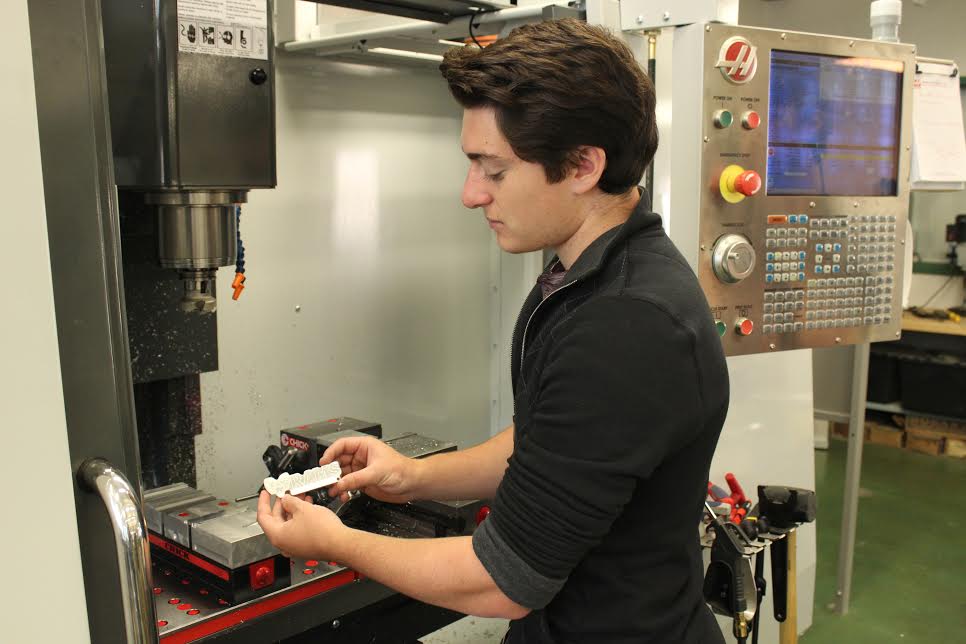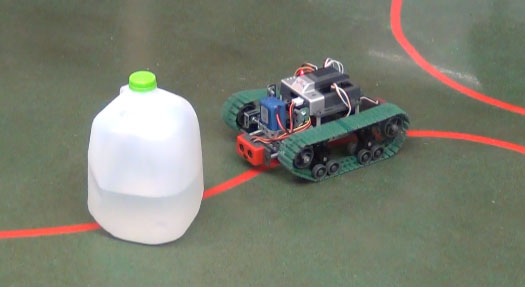Requirements
Credit Value: 1.0
Term(s) Offered: Full Year
Prerequisite(s): POE
Open to Grades: 11, 12
Type: Specialty
About CIM
Learn up close how things are made. Is the process for making a water bottle the same as a musical instrument? How are assembly lines designed and automated? Through your growing knowledge of the history, principles, and processes of manufacturing, you will design and build your own automated manufacturing system, factoring in safety, quality, cost, and efficiency. Use technologies in your projects that have revolutionized manufacturing: computer modeling, Computer Numeric Control (CNC) technology, Computer Aided Manufacturing (CAM) software, robotics, and flexible manufacturing systems. CIM is one of the specialized courses in Pine-Richland’s PLTW Pathway to Engineering course sequence. Students who have successfully completed the foundation courses Introduction to Engineering Design (IED) and Principles of Engineering (POE) at Pine-Richland can easily transition to this course. For maximum recognition or credit from PLTW-affiliated colleges and universities, it is recommended that a student successfully complete the two foundation courses, one specialized course, and the capstone course.

Course Outline:
Unit 1: Principles of Manufacturing
Lesson 1.1: History of Manufacturing
Lesson 1.2: Control Systems
Lesson 1.3: The Cost of Manufacturing
Unit 2: Manufacturing Processes
Lesson 2.1: Designing for Manufacturability
Lesson 2.2: How We Make Things
Lesson 2.3: Product Development
Unit 3: Elements of Automation
Lesson 3.1: Introduction to Robotic Automation
Lesson 3.2: Elements of Automation Power
Lesson 3.3: Robotic Programming and Usage
Unit 4: Integration of Manufacturing Elements
Lesson 4.1: Types of CIM Systems
Lesson 4.2: Integration of Manufacturing Elements
College Credit:
Students who are enrolled in this course have the opportunity to receive undergraduate credit through RIT (Rochester Institute of Technology)
To qualify, students must earn a stanine score of 6 or higher on the end-of-year exam (6 equals a C; 7 equals a B; 8 and 9 equal an A), and have a class average of 85% or higher. The cost for the course is $225, worth three semester credits.
Students who wish to earn RIT credit may do so by completing the current registration form, and sending it back to RIT at the address listed in the form.
https://www.rit.edu/emcs/pltw/students-parents
CIM Pictures




